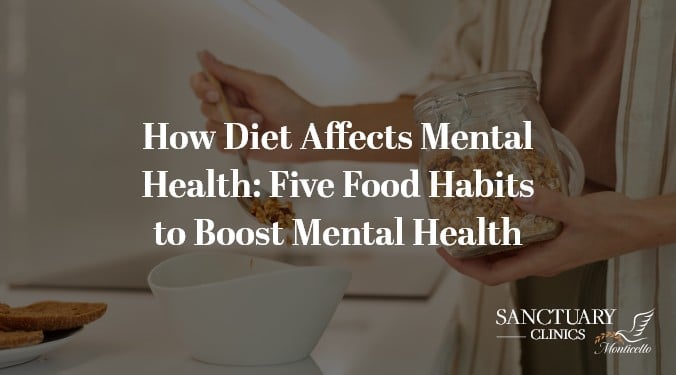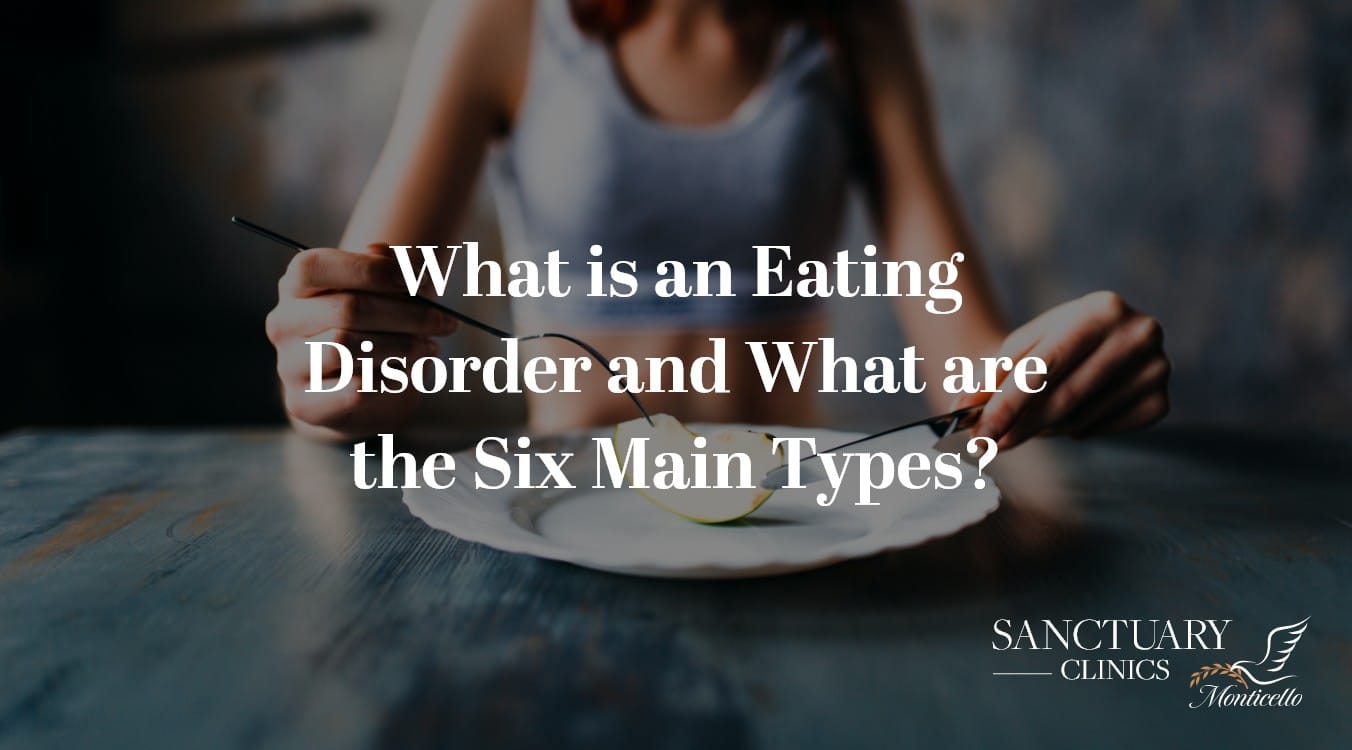The healthier your diet, the fewer your mood fluctuations and even a decrease in depression and anxiety. There is still more to learn, but research shows a clear connection between the foods we consume and their influence on your gut microbes and overall mental and emotional health.
Diet affects mental health because the foods we consume affect our brains. Food travels through our gastrointestinal (GI) system, most referred to as ‘the gut’ (which is very closely related to the brain), and therefore affects our moods depending on the food we eat and what the food contains. There are numerous foods you should eat, and also numerous foods you should avoid. There are also five food habits you can utilize to help you transition to a more healthy diet.
How it works
According to Healthline and Aetna, your gastrointestinal tract is home to billions of bacteria which affect the production of neurotransmitters. Neurotransmitters are chemical substances which constantly carry messages from the gut to the brain. Dopamine and serotonin are two major common examples. Therefore, eating healthy food promotes the growth of ‘good’ bacteria, which positively affects neurotransmitter production. A common diet of junk food, however, can cause inflammation which hinders neurotransmitter production.
This means when neurotransmitter production is in good shape, your brain receives positive messages loud and clear. In turn, your emotions reflect it. But when production goes awry, so might your mood. Sugar, in particular, is known to cause inflammation and feeds the bad bacteria in the GI tract. Ironically, sugar can also cause a temporary spike in feel-good transmitters, like dopamine. This isn’t good according to Rachel Brown, founder of The Wellness Project. This results in a brief sugar rush which is quickly followed by a crash that is bad for your mood.
Five food habits to boost mental health
1. Be patient with yourself
Changes don’t come overnight especially if it’s a lifestyle change. Seeing results with your mental health caused by a healthy diet you are not used to takes time. It’s beneficial to remember change is a process and you may stumble along the way. But this is normal.
2. East mindfully
One of the greatest steps you can take toward eating for your mental health is being aware of how various foods and beverages affect the way you feel. If you’re wondering whether certain foods could be affecting your mental health, try eliminating them from your diet. Observe any changes in how you feel. Once this is done, add the foods/beverages back into your diet and observe how you feel.
3. Start small
Instead of completely changing your diet as a whole, consider making one small change at a time. An example would be having at least one piece of fruit every day or decreasing the amount of sugar you add to your beverages.
4. Try swapping these foods
A small change that is easy to start with is swapping foods which seem to improve mental health for those that may not.
Here are a few examples of healthy food swaps:
- Whole fruits instead of dried fruits and juices
- Whole grains instead of refined grains
- Whole foods instead of packaged and processed foods
- Herbs and spices instead of sugar and salt
- Fruit-infused water instead of soda
- Kombucha or herbal tea instead of alcohol
- Fermented dairy instead of sweetened dairy
- Seafood or lean poultry instead of red and processed meats
5. Monitor your progress
Now you have a goal, you can track whether the changes you’re making are beneficial. A few ways to monitor your progress can be through documenting the different foods and beverages you are consuming and how they make you feel. You can use a checklist to help track the food groups you eat from in a day.
What foods stimulate my mental health positively?
Here are some foods and diets which can increase the good bacteria in your GI tract and in turn decrease the risk of mental health illnesses.
1. Mediterranean diet for depression
According to Healthline, a study found a diet rich in fruits, vegetables, whole grains, and legumes, and low in red and processed meat was associated with 10% lower odds of depressive symptoms. This diet is known as the Mediterranean diet. More research is still being done on this but the early evidence is compelling. Some health agencies are beginning to recommend this diet to support gut health and lower the risk of depression.
The Mediterranean diet includes an increased intake of fruits, vegetables, fish, nuts, legumes, olive oil, and dairy products. It limits fried foods, processed meats, baked goods, and sweetened beverages. According to Thebmj, studies have found sustained adherence to Mediterranean dietary patterns can reduce markers of inflammation in human beings. But an indulgence in a diet high in calories and saturated fat has been linked to detrimental effects on brain health, including cognitive decline, hippocampal (learning and memory) dysfunction, and damage to the blood-brain barrier.
2. Whole foods and fiber
Some studies have shown food coloring, preservatives, and other additives may cause or worsen hyperactivity and depression. Therefore, it is advised to eat real food or food which is minimally processed and has few healthy ingredients. Fresh fruits and vegetables are a great start. Examples of whole grains include brown rice, millet, oatmeal, barley, buckwheat, whole-wheat bread, etc. Plant-based foods are full of fiber, which helps your body absorb glucose or food sugars more slowly and helps avoid sugar rushes and crashes. Fiber-rich foods include fruits, vegetables, and nutrient-filled carbs like whole grains and beans. More examples include whole-wheat pasta, lentils, pears, berries, chickpeas, barley, etc.
3. Antioxidants and Folate
Leafy green vegetables, berries, and foods with Omega-3 fatty acids including salmon, walnuts, herring, sardines, flaxseeds, and black chia seeds are great antioxidants. Dark chocolate also contains antioxidants but should be consumed in moderation because it has sugar. Folate on the other hand is a type of Vitamin B which helps with dopamine production without forcing it to rush the way sugars do. This vitamin is found in lentils, cantalopes, beef liver, rice, fortified cereals, and leafy green vegetables.
4. Vitamin D
This vitamin helps with the production of serotonin. We usually get serotonin from exposure to sunlight. Mushrooms are high in Vitamin D. Especially reishi and maitake are good sources. If you are deficient, your doctor may recommend taking a supplement. Please consult with your doctor first before taking supplements.
5. Fermented foods
Fermented foods contain probiotics which are certain live bacteria that are good for your digestive tract. Some examples include kimchi, fermented drinks like kombucha, miso, tempeh, and sauerkraut. However, these foods tend to be high in sodium, so consume in moderation or ignore the food altogether if you have high blood pressure.
6. Magnesium
This vitamin helps with nerve and muscle function and keeping a heartbeat steady. It’s also vital to the food-mood connection. A mineral deficiency can hurt the bacteria in your gut and cause depression and anxiety-like symptoms. You can get magnesium from beans, bananas, cashews, almonds, dark chocolate, soy milk, pumpkin, and dark leafy greens.
What are the foods/habits which are not good for my mental health?
Just like some specific foods and habits help our mental health improve, some foods hinder positive mental health. These are some foods you may want to greatly reduce or eliminate to improve your mental health.
1. Ultra-processed foods
These are foods which have undergone industrial processing techniques. They are usually high in calories, salt, added sugar, and unsaturated fats. Examples are baked goods, salty snacks, candy, and sugar-sweetened beverages. Consuming ultra-processed foods regularly has been linked to a higher incidence of symptoms associated with anxiety, depression, and stress.
However, the term ‘processed foods’ includes a wide variety of products, many of which are more convenient and less expensive than other foods. Therefore, not all foods which undergo processing are considered necessarily harmful.
2. Eating at irregular times
The different times in which we eat throughout the day have been shown to influence our food choices, circadian (body cycle) rhythms, inflammation, and even the gut microbiome – all of which may affect mental health. According to Healthline, a recent study of nearly 4500 adult workers found irregular meal patterns were correlated with higher levels of productivity loss, sleep problems, neuroticism, and more factors which affect mental health. Although it may be challenging and not possible at all times, eating at regular times as often as you can is one way to balance your mood.
3. Alcohol consumption
Alcohol intake is associated with mental health conditions. The two are often entangled in a feedback loop. Those experiencing mental health symptoms use alcohol for temporary relief, only to find it exacerbates the symptoms they’re trying to alleviate.
Drinking too much alcohol may aggravate symptoms of depression, stress, anxiety, and mood disorders. When you are struggling with mental health, it may be best to keep away from alcohol or drink in moderation. According to The Center for Disease Control and Prevention (CDC) this means no more than one drink for women or two drinks for men per day.
4. A lack of sleep
Not only is a lack of sleep itself associated with poorer mental health, but it may also influence gut health and food choices. One culprit which could be harming your sleep is caffeine, and its effects may be particularly significant in young people. According to Healthline, a larger study including more than 68,000 adolescents found energy drinks were significantly associated with poor sleep, depression, and severe stress. Interestingly, the effect was highest in those who also ate processed foods frequently. If you have trouble sleeping, try limiting caffeine intake to the morning hours
Regular physical activity, a healthy diet, more water intake, avoidance of tobacco and alcohol, and proper sleep are fundamental factors in mental health.
Conclusion
Moving forward, it is important not to neglect the existing knowledge on other ways diet may affect mental health. For example, the later consequences of a poor diet could lead to obesity and diabetes, which have already been shown to be associated with poorer mental health. Therefore, it is important to acknowledge developing public health initiatives which effectively tackle the established risk factors of physical and mental comorbidities is a priority for improving population health.
Sources
Firth, J., Gangwisch, J. E., Borisini, A., Wootton, R. E., & Mayer, E. A. (2020). Food and mood: how do diet and nutrition affect mental wellbeing? BMJ, 369, m2382. https://doi.org/10.1136/bmj.m2382
Can Your Diet Affect Your Mental Health? (2022, June 29). Healthline. https://www.healthline.com/nutrition/diet-and-mental-health-can-what-you-eat-affect-how-you-feel#what-to-add
Gomstyn, A. (2021). Food & Your Mood: How Food Affects Mental Health – Aetna | Foods That Help Your Brain Health. Aetna. https://www.aetna.com/health-guide/food-affects-mental-health.html#:~:text=When%20you%20stick%20to%20a









